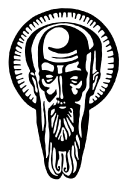BA in Scandinavian Studies
Head of the programme: Chief Assistant Nadezhda Mihaylova, PhD
e-mail: nstanislav@uni-sofia.bg
Admission: According to the Regulations for admission of students. The number of students admitted per year is on average about 30, while the number of candidates is much higher. According to the Ministry of Education and Science of the Republic of Bulgaria, their score is often among the highest of all prospective students at Sofia University.
Application:
The conditions for application, the necessary documents, the procedures for conducting and evaluating the exam papers, as well as the ranking and enrolment of the newly admitted students are stated in the Regulations of Sofia University. More information is available here:
Prospective students can be not only Bulgarian but also foreign citizens, e.g. from North Macedonia, Serbia, Ukraine, etc.
Upon successful completion of the course of education, the educational and qualification degree “Bachelor” is obtained.
Academic staff
The academic staff includes highly qualified Bulgarian lecturers as well as guest lecturers from the respective Nordic countries. The Swedish Institute, Stockholm, and the Norwegian Directorate for Higher Education and Skills, Oslo, maintain regular lectureships in Swedish and Norwegian, which are undoubtedly important for the effective learning process in this field. Since 2018, there is also a guest lecturer in Danish language and culture, thanks to the Ministry of Higher Education and Culture, Denmark. More information about the academic staff is available here.
BA programme
Duration: eight semesters.
Form of education: full-time student.
Curriculum:
The curriculum includes:
– general philological theoretical and practical disciplines,
– theoretical and practical courses, directly related to the languages, cultures and literatures of the Nordic countries.
– intensive and in-depth study of two or more Scandinavian languages from a beginner level.
Practical course in Scandinavian Language 1 (Danish, Norwegian or Swedish language)
The course is divided into different elements – grammar, vocabulary, translation, conversation, phonetics, etc., which build up skills in different areas of the oral and written communication. Since the academic year 2024-2025 the main Scandinavian language of study (Scandinavian Language 1) alternates in the sequence Danish – Norwegian – Swedish. In other words, it is Danish for students enrolled in 2024, Norwegian for students enrolled in 2025, Swedish for students enrolled in 2026, and so on.
Practical course in Scandinavian Language 2
A second Scandinavian language (Scandinavian Language 2) is studied from the fourth semester until the end of the programme – a total of 5 semesters. For students whose main language of study is Danish, the second Scandinavian languages offered are Norwegian or Swedish as per choice. For students whose main language of study is Norwegian, the second Scandinavian languages offered are Danish or Swedish as per choice. For students whose main language of study is Swedish, the second Scandinavian languages offered are Danish or Norwegian as per choice. An elective course in Finnish language and culture is also part of the curriculum.
Theoretical linguistic courses
The theoretical linguistic courses include lectures and exercises in the phonetics and phonology, morphology, syntax, lexicology, word formation and stylistics of the student’s main Scandinavian language, as well as the history of the Scandinavian languages. There is also an obligatory theoretical course in Icelandic.
History of Nordic literature
The training aims at presenting the development of Nordic literature in the context of European literature. The focus is on the different ideological and artistic movements, major representatives of the respective periods, as well as their main works. The module is obligatory and consists of six parts covering the period from Old Norse literature to the middle of the 20th C.
Cultural Studies
The module includes an introductory course on the Nordic Countries focusing on the country whose national language is the students’ Scandinavian Language 1. It continues with specialized courses on the individual Nordic countries – Denmark, Norway, Sweden, Iceland, and Finland. In these courses the students learn about the history, culture, traditions and the contemporary characteristics of the Nordic countries, and their place in Europe and the world.
Elective courses on:
– Old Norse mythology,
– practical problems of translation from Scandinavian languages,
– the philosophy of Søren Kierekegaard
– the works of H.C. Andersen and Karen Blixen
– the dramaturgy of Henrik Ibsen and August Strindberg,
– the novels of Knut Hamsun
– Norwegian folklore
– the current social, political and cultural situation in Sweden
– Academic writing
– Dialects of the Scandinavian languages
– Old Norse
– Linguistic aspects of intercultural business communication with a focus on Danish, Norwegian or Swedish
Optional courses
Pedagogical module
Students who successfully pass the exams in the disciplines of the optional pedagogical module receive an additional professional qualification “teacher of Scandinavian languages and literature”.
Bulgarian as a foreign language
Compulsory subject for foreign students, the training is provided in 4 semesters.
Scholarships
The Scandinavian countries offer various scholarships each year to study at their educational institutions. They cover different periods – from several weeks (e.g. summer courses) to specializations of three, four or nine months (the Erasmus and Erasmus+ programmes, etc.).
Professional realization of the graduates of the programme
The curriculum in this academic discipline is aimed at training specialists with wide opportunities for realization in the cultural, scientific, and social spheres, teachers for secondary schools, university professors, translators, and others. In addition, graduates of the Scandinavian Studies programme find work in the field of international relations and tourism, in institutions and government agencies, EU structures, diplomatic missions in Bulgaria and abroad, media, newsrooms, publishing houses and in various public and private companies. The bachelor’s degree gives the opportunity to develop as a master’s degree students, thereafter they can also apply for a PhD programme.
In recent years, the Scandinavian Studies Section has prepared full-time PhD students in Swedish, Norwegian and in literary history.
